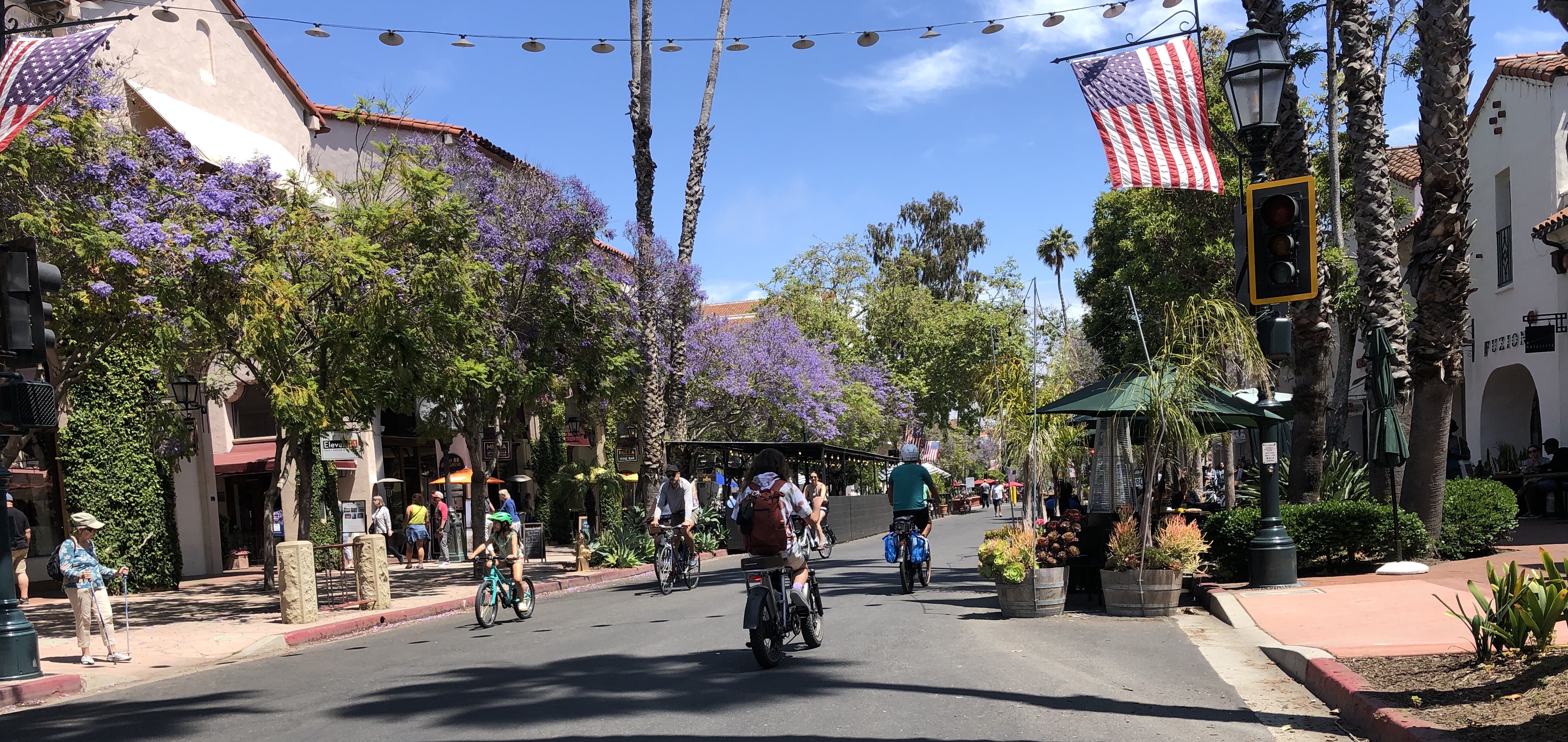State Street in Subcommittee Purgatory
Downtown Santa Barbara Faces Year Four of No Innovation, Experimentation, or Aesthetic Standards

This past Tuesday, City Council opted to play a rousing game of “kick the can,” thereby sentencing State Street to a minimum of three years of continued closure. The consultant-aided future design process continues unabated, but the current configuration of the downtown has languished in stagnation due to the indecision of the council. This is not a design issue, but a management problem. The eventual design is not dependent on maintaining the current use of the downtown corridor. This will be our fourth summer of status quo without innovation, experimentation, or a return to aesthetic standards.
I was not in office at the time the street closure was authorized. It was the right thing to do, providing relief for the beleaguered restaurants who were fighting to stay alive. But, I don’t think anyone imagined we’d be facing our fourth consecutive summer with no changes, no trial configurations, and no cogent policies to handle this interim situation. While I’ve so far remained at arm’s length, thinking that current conditions were finite and that a strategy was forthcoming, it’s apparent that it’s not the case.
Yet another subcommittee was proposed to, ostensibly, move plans forward. The current subcommittee’s only tangible product, however, was a rent structure for State Street parklets, which they then joined council in voting against. That rent structure, by the way, was calculated and intended to recover the costs of maintaining the “promenade.” That vote resulted in a $350,000 per year shortfall in our General Fund budget. It was suggested that somehow, inaction was the fault of the administration. Nothing could fall further from the truth. The seven of us on the dais are precisely where “the buck stops.” Policy decisions don’t happen in advisory subcommittees nor by individual suggestion to the City Administrator. They only happen per a majority of the council.
Polling data might be a means by which one takes the political temperature, but it is not how policy is determined. Information gathering is valuable, but skirting tough decisions by hiring more consultants or seeking out agreeable polling data is not the leadership you deserve. The next formed subcommittee holds no promise of change.
Councilmember Eric Friedman proposed a stopgap measure to allow a more tightly defined “promenade,” while opening the rest of State Street to linear traffic. This would have the result of calming bicycle traffic — by the way, did we have a “bike problem” before the street was closed? — allowing for disabled persons to access the downtown business corridor and enticing those businesses that rely on traffic for their storefronts. At the very least, it would break the current pattern of an underutilized downtown, and it would allow property and storefront business owners the opportunity to recover. This, at least, would be a cogent interim proposal.
The eventual work of the State Street Advisory Committee and the consultant continues on pace. The completion of their task, however, doesn’t suggest a finite timeline for implementation, as we have found out with the numerous previous consultant efforts, architectural charrettes, and public forums. Change can be good, but only when it isn’t just for “change’s sake.” It must include diversity of needs, have a realistic financial plan, and, most of all, be devoid of politics, ideologies, or special interests. Our public commons require those characteristics if we are to be successful.
We need to move to improve our downtown beyond its current condition, and to act quickly, before the rate of exodus of businesses increases to the point of no return. Private properties and some types of businesses have arguably suffered loss of value by the continuation of the well-intended emergency mandate.
Being in business downtown for four decades doesn’t confer “genius” on anyone. I’m living proof of that. It does, however, give one perspective. Our policies must be inclusive, fair to a diversity of businesses, and encourage new enterprises. Our current status doesn’t provide that standard, and we must move decisively if we are to regain vibrancy and vitality in our downtown business corridor. The time is not three years from now, but now, right now.
